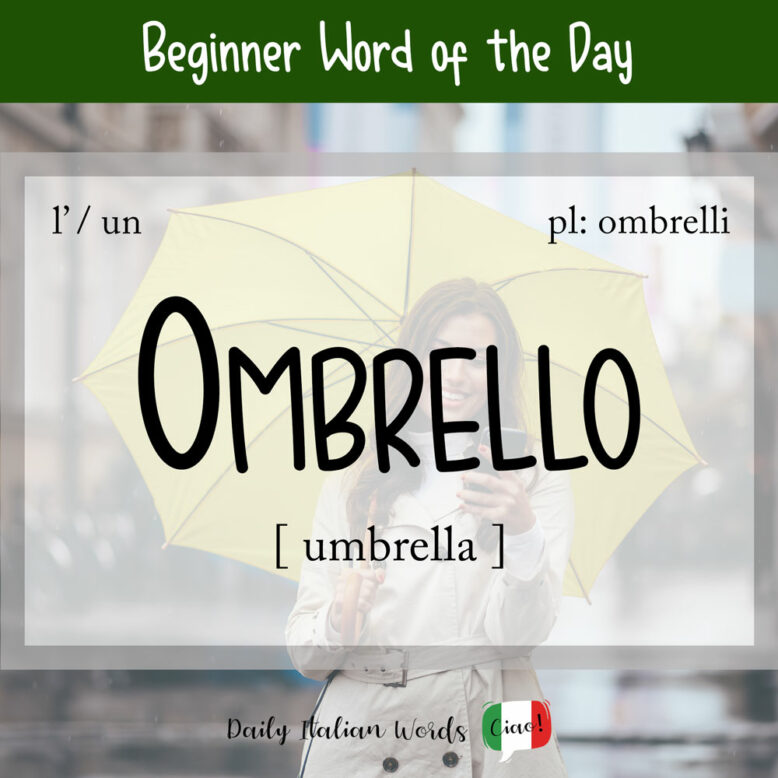Today’s word is useful on both sunny and rainy days! Ombrello (masculine, plural: ombrelli), which is the word for umbrella in Italian, is the diminutive form of ombra meaning shade and comes from the Latin umbra of the same meaning.

The ombrello da pioggia (rain umbrella) can also be called a parapioggia or paracqua in Italian whereas the ombrello da sole (sun umbrella) also goes by the name parasole, which shares the same origin as the word parasol in English.
A Londra molta gente va in giro con l’ombrello in qualsiasi tipo di clima.
In London many people go around with an umbrella in all kinds of weather.

Ombrellino, the diminutive of ombrello, literally means small umbrella and is often used to refer to the tiny paper umbrellas placed in cocktails, umbrellas attached to baby carriages, or the elegantly crafted parasols women used to carry in the past. In the Catholic religion, it is also the word for the small canopy that, according to the Roman ritual, must be kept open above the priest’s head when he publicly carries the Blessed Sacrament.
Ombrellone on the other hand usually denotes a beach umbrella or any other kind of large umbrella that protects people from the sun at cafés, restaurants or markets. The expression vicino di ombrellone (lit: beach umbrella neighbour) is how you’d describe an acquaintance or friend who often chooses a spot or hires an umbrella next to you at the beach.
Il peggior vicino di ombrellone è quello che si mette troppo vicino!
The worst “beach umbrella neighbour” is the one who gets too close!

Below are a few handy verbs you might want to use along with ombrello:
- aprire l’ombrello = open the umbrella
- chiudere l’ombrello = close the umbrella
- tenere l’ombrello = hold the umbrella
- stare sotto l’ombrello = stand under the umbrella
Ombrello can also translate as shield or cover. For example, an air defence system in Italian is ombrello aereo whereas a nuclear shield is an ombrello nucleare.
The stone pine, a coniferous evergreen tree that is native to the Mediterranean region, is called pino ad ombrello (umbrella pine) in Italian because of its bushy umbrella-like canopy.
Heather Broster is a graduate with honours in linguistics from the University of Western Ontario. She is an aspiring polyglot, proficient in English and Italian, as well as Japanese, Welsh, and French to varying degrees of fluency. Originally from Toronto, Heather has resided in various countries, notably Italy for a period of six years. Her primary focus lies in the fields of language acquisition, education, and bilingual instruction.


